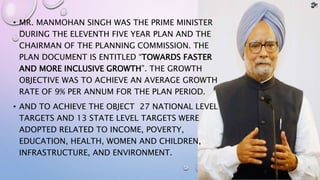


Bhutan's Prime Minister Tshering Tobgay paid tribute to late Indian PM Manmohan Singh, who passed away last week at the age of 92. Tobgay visited the Indian Embassy in Thimpu and signed the condolence book, thanking Singh for his unwavering support and personal friendship. Singh, who is considered as the architect of Indian economic reform, played a crucial role in the successful launch of the 11th Five Year Plan for Bhutan during his tenure. Despite their political differences, Singh's support and cooperation were instrumental in the plan's swift implementation.
Bhutan Honors Late Indian Prime Minister Manmohan Singh
The Kingdom of Bhutan recently paid tribute to former Indian Prime Minister Manmohan Singh, who passed away at the age of 92. Bhutan's Prime Minister, Tshering Tobgay, visited the Indian Embassy in Thimphu and signed the condolence book, expressing gratitude for Singh's unwavering support and personal friendship.
Background on Bhutan-India Relations
Bhutan and India share a close historical, cultural, and economic relationship. The two countries signed a Treaty of Friendship and Cooperation in 1949, which established a special bond between them. India has been a major development partner for Bhutan, providing financial and technical assistance for various projects.
Manmohan Singh's Role in Bhutan
Manmohan Singh's tenure as Prime Minister from 2004 to 2014 was a significant period for Bhutan-India relations. Singh, who is widely regarded as the architect of India's economic reforms, played a crucial role in the launch of Bhutan's 11th Five Year Plan. The plan aimed to accelerate economic growth, reduce poverty, and enhance human development.
Singh's support and cooperation were instrumental in the successful implementation of the plan. He also promoted closer economic ties between Bhutan and India, including initiatives such as the Bhutan-India Joint Economic Commission.
Bhutan's Tribute to Singh
Bhutan's Prime Minister Tshering Tobgay said in a statement, "Prime Minister Singh was a true friend of Bhutan. His unwavering support and personal friendship have had a profound impact on our nation."
Tobgay also noted the deep respect and admiration Singh had for the Bhutanese people and their culture. He added, "Bhutan will forever cherish the memory of this great leader who touched the lives of millions."
FAQs
1. What was Manmohan Singh's significance to Bhutan?
Manmohan Singh was instrumental in the launch of Bhutan's 11th Five Year Plan and played a key role in promoting economic cooperation between Bhutan and India.
2. How has Bhutan honored Singh's legacy?
Prime Minister Tshering Tobgay visited the Indian Embassy in Thimphu and signed the condolence book, expressing gratitude for Singh's support and friendship.
3. What are the current relations between Bhutan and India?
The two countries maintain close ties, with India continuing to be a major development partner for Bhutan.
4. What is the Treaty of Friendship and Cooperation?
This treaty was signed in 1949 and established a special bond between Bhutan and India, providing a framework for cooperation in various areas.
5. How has India contributed to Bhutan's economic growth?
India has provided financial assistance, technical expertise, and trade opportunities that have helped accelerate Bhutan's economic development.

Russian President Vladimir Putin visits India for a 27-hour trip to meet Prime Minister Narendra Modi and discuss a wide range of topics. The two leaders had a private dinner where they set the tone for the official summit talks the following day. During the talks, PM Modi announced a 2030 Economic Cooperation Programme and discussed economic and energy cooperation with Putin. Additionally, they also emphasized the need to jointly combat terrorism and find a peaceful resolution to the conflict in Ukraine.

In a shocking development, it has been discovered that the bodies of several victims repatriated to the UK following the Air India crash in Ahmedabad were found to contain dangerous levels of formalin, carbon monoxide, and cyanide. This was revealed by Professor Fiona Wilcox, who is leading the investigation into the deaths of 53 British nationals in the crash. The report highlights the lack of awareness about the dangers of formalin exposure in morgues across the UK, putting mortuary staff at risk. Immediate measures have been taken to mitigate the danger, but the report raises concerns about the handling of bodies in such facilities.

Russian President Vladimir Putin and Indian Prime Minister Narendra Modi met in India for discussions on strengthening their countries' strategic partnership. This meeting comes at a time when Russia and India are facing increasing pressure from the United States, with the US imposing tariffs on Indian purchases of Russian oil and Russia's ongoing conflict with Ukraine. Despite these challenges, Modi and Putin have maintained a strong personal relationship and are seeking to deepen their cooperation.

Russian President Vladimir Putin's visit to India has garnered significant attention as it takes place amidst strained relations between India and the US. His 27-hour visit included a ceremonial welcome at the Rashtrapati Bhavan, laying a wreath at Rajghat and taking part in a dinner with PM Modi. The highlight of the visit was PM Modi's gift of a copy of the Bhagavad Gita in Russian, emphasising the cultural and philosophical bonds between the two countries.

The Pakistani government has come under heavy criticism after images claiming that their relief aid to Sri Lanka contained expired products went viral on social media. The supplies, intended for families affected by Cyclone Ditwah, were sent as emergency assistance but were found to have an expiry date of October 2024 printed on the packaging. This discovery has sparked outrage and disbelief, with netizens slamming the Pakistani authorities for their insensitivity and lack of attention to detail.

Thousands of passengers, including Tamilians and other Indian nationals, have been trapped at the Bandaranaike International Airport in Colombo for the past few days due to the devastation caused by Cyclone Ditwah. The Indian High Commission has reaffirmed its commitment to helping its neighbor by delivering urgent humanitarian aid and disaster relief through Operation Sagar Bandhu. Along with providing relief materials, the Indian government is also coordinating with the Sri Lankan government to facilitate the safe return of stranded passengers. Meanwhile, Prime Minister Narendra Modi has expressed sorrow over the loss of lives in Sri Lanka and has promised immediate support from India.

Amidst a fragile ceasefire, Israel carried out a targeted airstrike in the Lebanese capital of Beirut, killing five people and injuring dozens more. The strike was ordered by Israeli Prime Minister Benjamin Netanyahu and has drawn criticism from both the Hezbollah and the Lebanese President. This attack marks a significant escalation in tensions between Israel and Hezbollah, who have been in a state of war for almost two years.

Rajnath Singh spoke at a public event where he reinstated the key role that cultural bonds play in India's global hegemony and asserted Sindh's continued significance to Indian heritage Seeing the ever stronger connection between Sindh and India that has recently seen acknowledgement from the people of Pakistan-occupied Kashmir themselves, in the coming years boundaries could realign providing a pathway for Sindh to once again be a part of India.

Indian Prime Minister Narendra Modi arrived in Johannesburg for the G20 Leaders’ Summit in South Africa, where he will engage in bilateral meetings and participate in the IBSA Summit. This marks the first time the G20 is being held in Africa, with the focus being on building solidarity, equality, and sustainability. PM Modi also expressed his excitement to meet with the Indian diaspora in South Africa, highlighting their strong presence in the country. He will present India's perspective on global issues, emphasizing the country's vision of 'Vasudhaiva Kutumbakam' (the world is one family).

As India commemorates its Independence Day in 2025, it's important to share the spirit and pride of this special day with the world. From inspiring morning messages to beautiful patriotic images, this collection offers the perfect words and visuals to show your love for India. Whether it's through WhatsApp, Instagram, or other social media platforms, spread the joy and gratitude for your country on this momentous day.